Ones to Watch in Sustainable Fashion | Complete List of September
October 11,2020
Since August 2020, Luxe.CO has been publishing the тOnes to Watch in Sustainable Fashion" weekly. From тpower to innovateт and тpower to implement strategiesт two dimensions, it selects the best innovative and original sustainable fashion application cases, as well as the most courageous sustainable strategic measures. The weekly list cases directly enter the "Ones to Watch in Sustainable Fashion" annual award candidate list.
In September 2020, a total of 13 brands or companies were listed on the Luxe.CO Sustainable Fashion Power List.
September Listed Brands and Company Profiles:
1). Spanish packaging manufacturer Pujolasos has launched a new patented design of recyclable bottle cap "Woodle". This bottle cap is made of natural wood and a specific plastic inner layer, and the fixing between the two materials does not require the use of glue. When the service life is over, the two materials can be directly separated and recycled. Besides, the disposable plastic used in the inner layer of "Woodle" can also be recycled into recyclable PCR plastic.
Pujolasos pointed out that this patent applies to any plastic accessories in perfumes or cosmetics, as well as any packaging materials that need to be matched with plastic, not just wood.
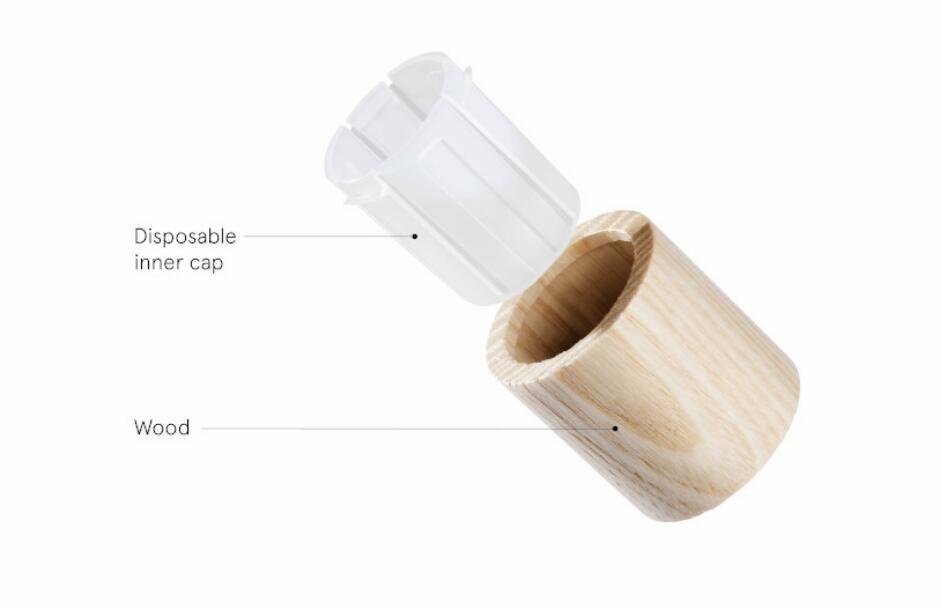
2). John Frieda, a hairdressing brand under the Japanese daily chemical giant Kao Corporation, has launched a sustainable packaging, Tube-Like-Pouch (TLP), which uses 50% less plastic than the original John Frieda 8.45-ounce tube packaging. Because of the flexible nature of this packaging, the internal products can be completely extruded for use, which helps reduce waste.
This innovative design reflects Kao Corporation's commitment to make life better and provide consumers with a more sustainable lifestyle. In fact, in 2019, the Kao Corporation announced a lifestyle plan, promising to contribute to sustainability in terms of decarbonization, zero waste, water conservation, and responsible sourcing.
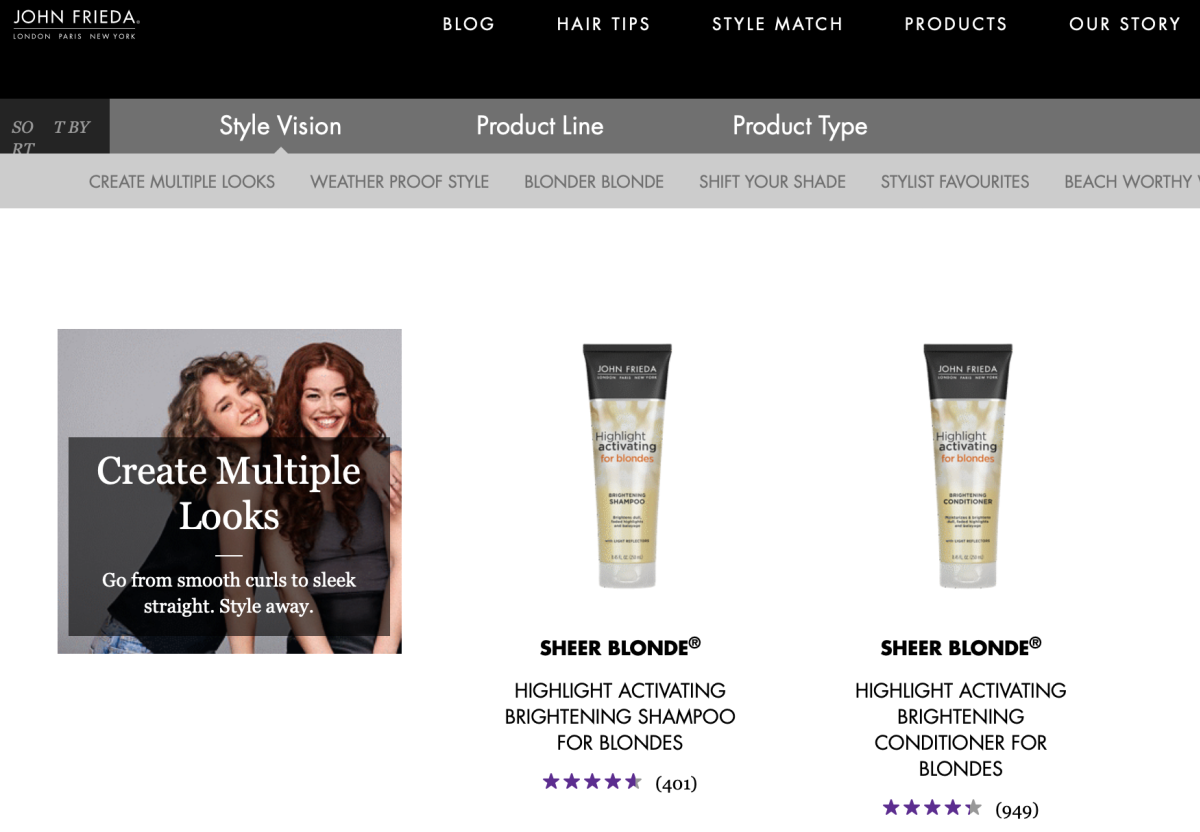
3). Ingka Group, the parent company of Swedish furniture retailer IKEA, will invest 600 million euros in sustainable development to achieve its goal of reaching a positive impact on the climate in the entire value chain by 2030. Ingka plans to use one-third of the funds for renewable energy, one-third for stakes in innovative start-ups, and the last one-third to improve the sustainability of stores and warehouses.
Ingka Group said, тThe company will focus on investing in companies and solutions that have a direct impact on the 2015 Paris Climate Agreement and the UN Sustainable Development Goals."
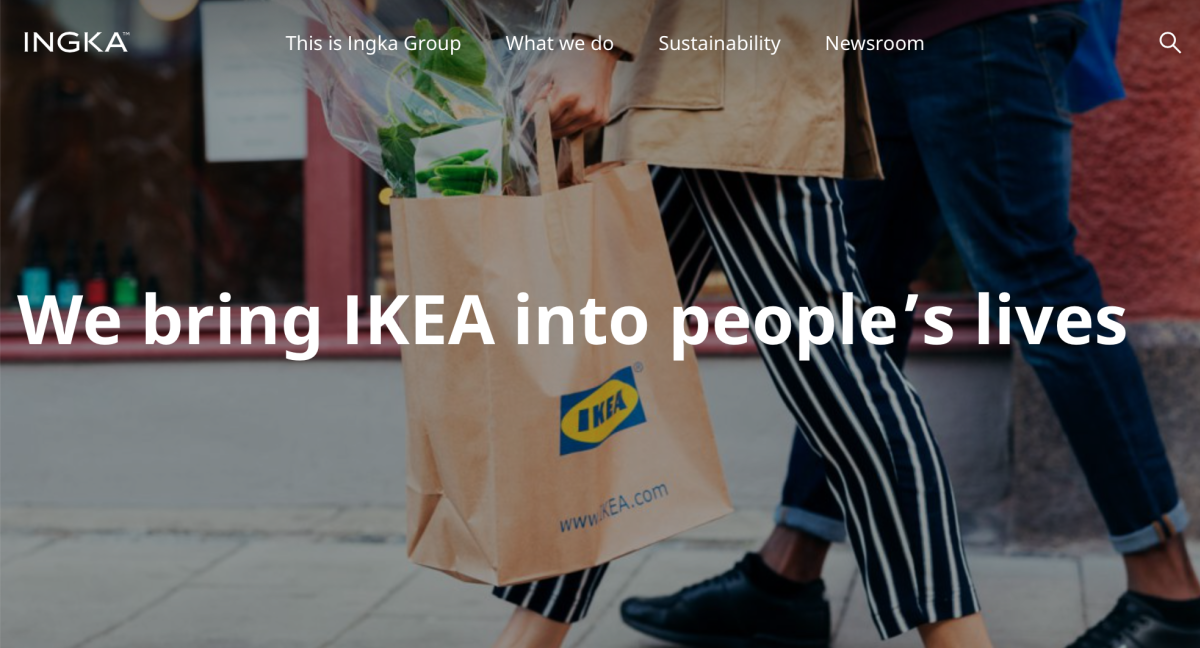
4). American fashion design master Tom Ford has launched the BANNISTER series of environmentally friendly shoes. The upper is made of vegetable-tanned leather and does not contain chemical harmful substances. The belt decoration on the shoes is also made of leather without any chemical oil treatment. The sole is made of 35% natural degradable materials. Also, the brand cooperates with a local juice company in Italy to recycle apple peels for making sports shoes.
Besides, Tom Ford has announced the launch of a watch made 100% of marine plastic collected from coastlines and garbage dumps with recyclable packaging. It is reported that every 1,000 pieces of marine plastic watches produced and sold by Tom Ford will permanently remove and prevent 490 pounds of plastic waste from entering the ocean. This series of watches are priced at US$995 and will be available in Tom Ford's global boutiques and official website in November.
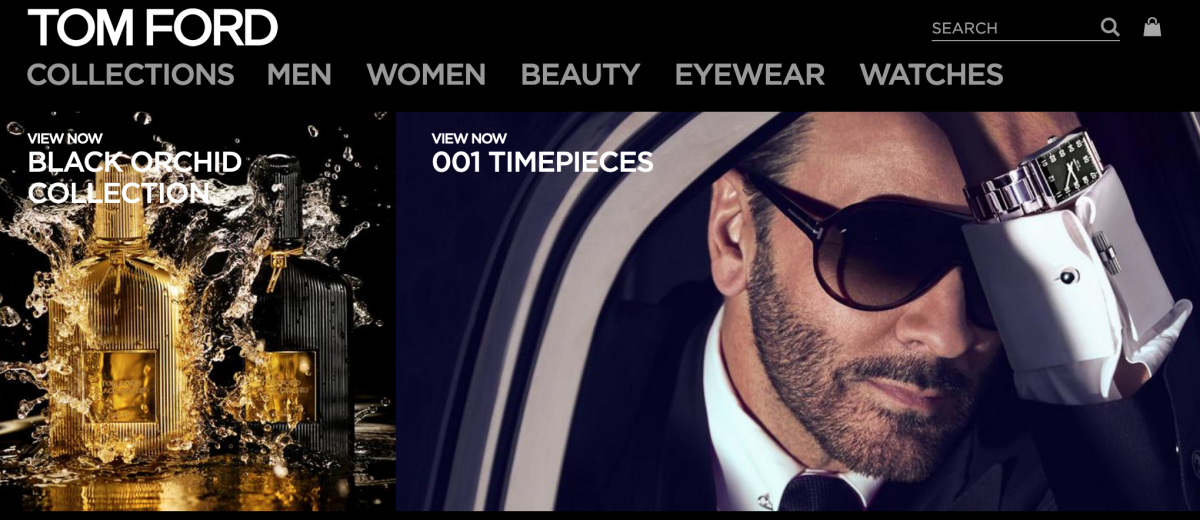
5). The American personal care products giant Johnson & Johnson has announced the "Healthy Lives Mission" plan and promised to invest $800 million by 2030 for a series of initiatives to improve the health of humans and the planet, including improving product ingredients transparency, reduce reliance on plastic packaging, and improve people's awareness of safe sun protection.
Johnson & Johnsonтs long-term goal is that its brands will use 100% recyclable, reusable or compostable plastic packaging, use 100% renewable energy to provide power, and use 100% Roundtable on Sustainable Palm Oil (RSPO) certified palm oil. In the short term, achieving transparency of raw material composition is the focus.
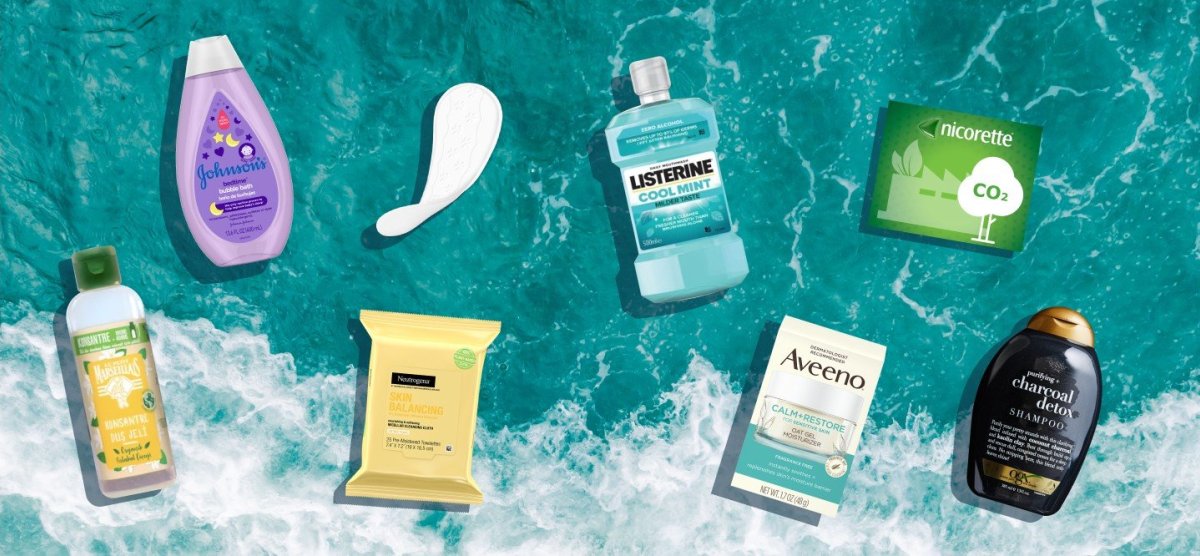
6). China Women's Wear EP YAYING Fashion Group relies on the industrial cooperation between the eastern and western parts of Jiaxing, Zhejiang and Aba, Sichuan to penetrate the grasslands of western Sichuan and launch the 2020 autumn and winter yak wool series. This series of products has not undergone any chemical treatment which reduces ecological pollution. The warmth of yak wool is 30% higher than normal wool, and yak stocking has less impact on the ecological environment than goats.
EP YAYING Group explores the path of sustainable development for Chinaтs natural and rare animal fiber yak wool and combines ecologically sustainable development with the east-west collaboration yak wool industry chain, which not only provides better protection for the grassland ecology but also brings a better life to Tibetan herdsmen and allows the Tibetan yak culture to be passed on.
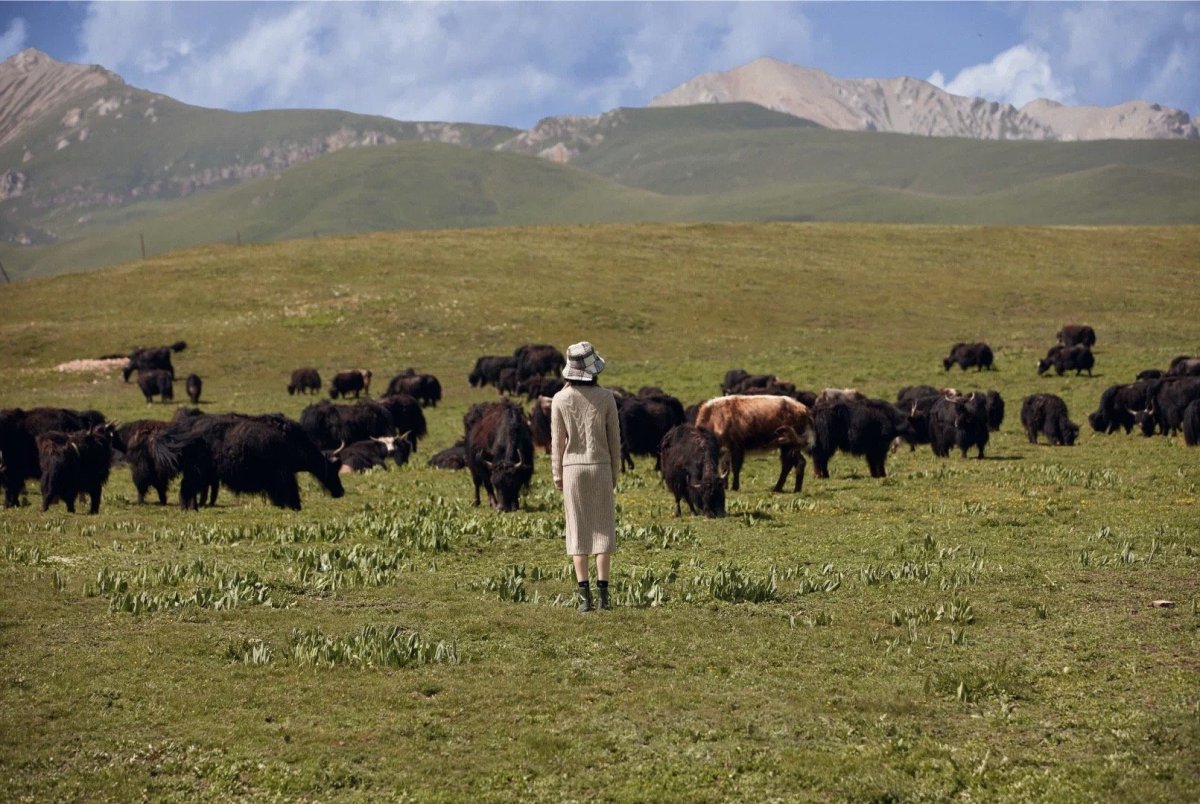
7). The Danish toy brand LEGO has stated that it will phase out single-use plastic packaging from 2021 and use recyclable paper to package toys as part of achieving all packaging sustainability goals by 2025. LEGO has been working hard to develop alternatives to petroleum-based plastics for many years and is currently cooperating with relevant research institutions and companies to find high-quality materials to replace plastics. LEGOтs goal is to use sustainable materials to make products by 2030, such as sugar cane and other plant materials.
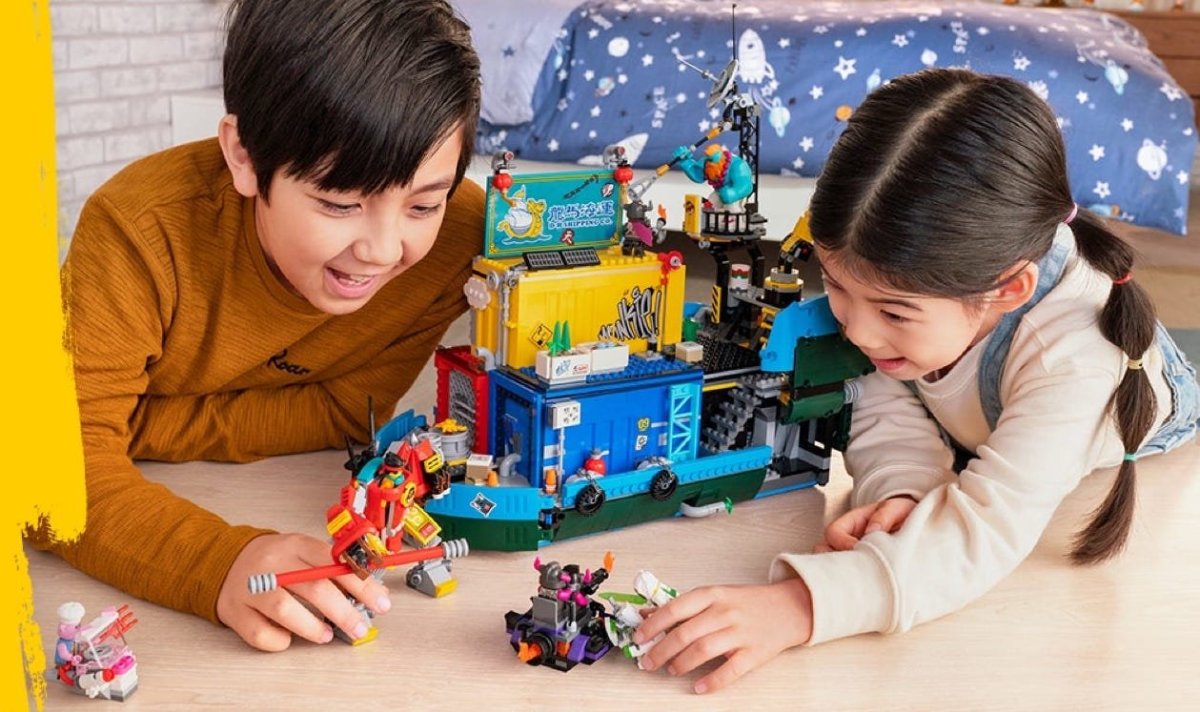
8). Japanese fast-fashion brand Uniqlo has launched a used clothing recycling program called Re. Uniqlo, which aims to recycle consumer second-hand and idle branded clothing into new products. The first product that Re. Uniqlo plans to launch is a V-neck down jacket made from 100% recycled materials. There are 4 colors, and the price is 7,990 yen (approximately 520 yuan). It will be available in 67 Uniqlo stores in Japan, 22 overseas stores, and official website sales on November 2.
Uniqlo hopes to prove the advantages of recycling and waste reduction through this project. Throughout the product life cycle, waste and carbon emissions are greatly reduced, it wishes to unite consumers with this and strive to become a brand that is more beneficial to the environment and the community. It is reported that the first project in Re. Uniqlo's recycling program is called "Down Recycling". Uniqlo's primary goal is to start "Down recovery" activities worldwide from the fall of 2020 and cooperate with customers around the world to achieve the promise of more sustainable down products.
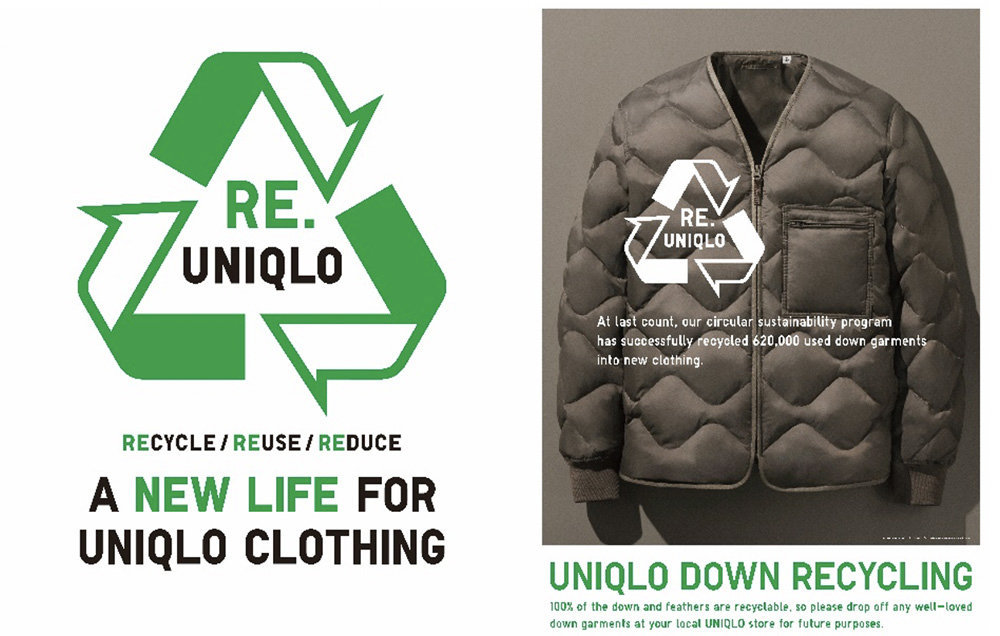
9). Chinese viscose fiber manufacturer Sateri and DuPont of the United States have cooperated to launch Ultra™, an environmentally friendly stretch fabric made of DuPontтs SoronaТЎ fiber, and Sateri EcoCosyТЎ fiber. The former is made of renewable plant-based ingredients and the latter comes from certified sustainable wood sources.
Liu Tao, Vice President of Sateriтs Business, said, тUltra™ combines the advantages of SoronaТЎ and EcoCosyТЎ, and it will not only be a natural and comfortable product but also sustainable.т The global sportswear market is expected to reach around $208 billion in 2025. Coupled with the recent COVID-19 pandemic, which has led to a further increase in sports and leisure fashion, and the increase in demand for exercise at home, the demand for high-performance and comfortable clothing is expected to continue to grow. Ultra™ embodies these characteristics and demonstrates the win-win ability of sustainable clothing.
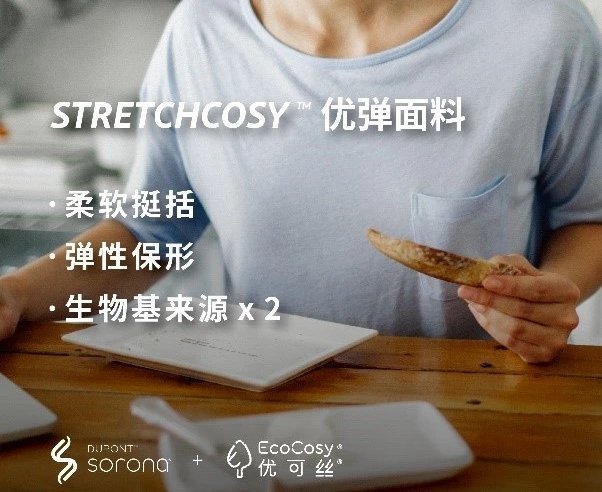
10). Australian organic skincare brand Aesop has tried a refilling program in a store in Adelaide, Australia. After consumers purchase four Aesop facial cleansers, they can return the glass bottles for cleaning, disinfection, and refilling after use. The long-term goal of the brand is to provide refilling solutions for 50% of the brandтs beauty products by 2030. Through a series of environmental protection initiatives and partnerships, it will increase sustainability, strive to achieve a circular economy, and meet the new consumption need after the epidemic.
Aesop is committed to reducing the impact on the planet. It does not use animal experiments when developing its products. It has been certified by Leaping Bunny, an international cruelty-free organization, and has been included in the cruelty-free and vegan list by the People for the Ethical Treatment of Animals (PETA). Aesop also develops an ethical procurement plan to ensure that the production processes of brand suppliers are environmentally responsible, have safe working conditions, and respect and understand the value of employees.
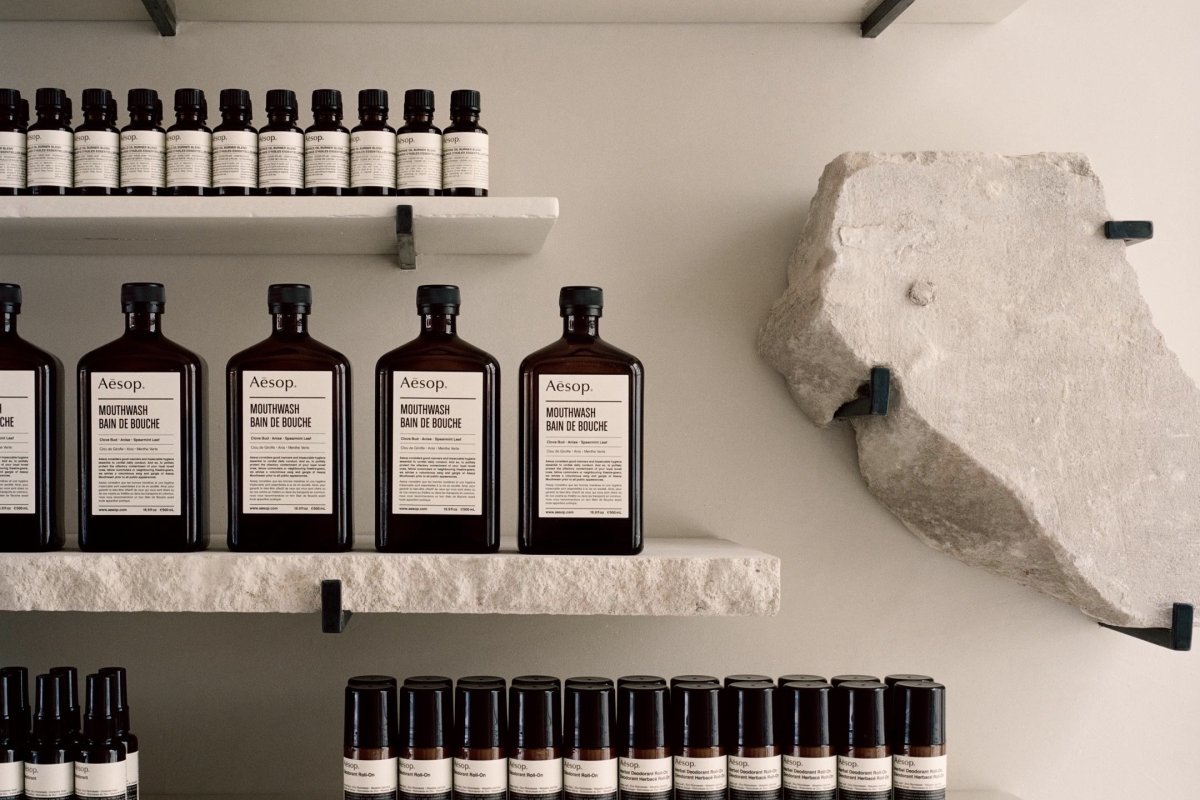
11). The top hotel brand Shangri-La Hotels and Resorts, in conjunction with the Chinese textile recycling system The Billie System and the fashion designer brand Cynthia & Xiao, upgraded and rebuilt the fabrics of discarded hotel beds to jointly promote sustainable development. Currently, the tourism industry is facing the impact of the global epidemic. As a pioneer in the industry, Shangri-La Hotels and Resorts hopes to bring a unique and fashionable travel experience to the community and global travelers through this meaningful project.
Through The Billie System's innovative and environmentally friendly textile recycling process which neither consumes water nor produces toxic chemical waste, the hotelтs waste bed sheets will be broken down into fibers and produced into recycled yarns to make new fashion travel equipment, including robes, knitted jackets, and travel bags, etc. It is reported that limited cooperative products will be sold in selected Shangri-La Hotels and Resorts in southern China and in some boutiques from October 2020.
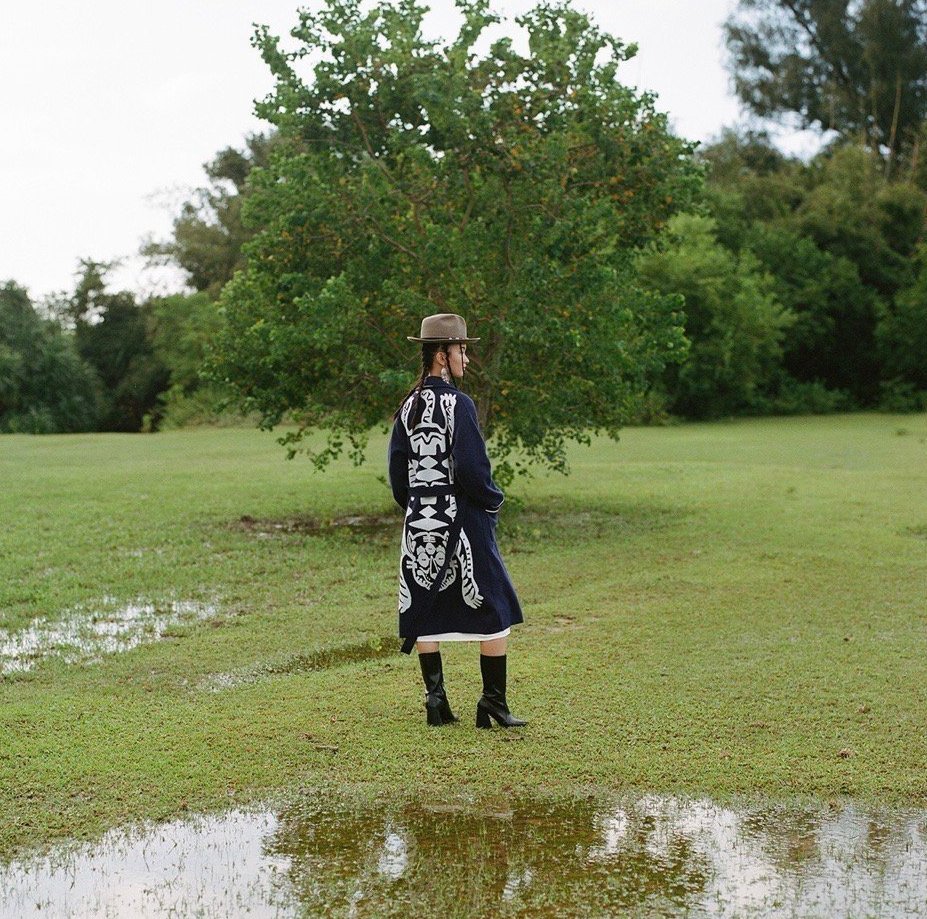
12). Sephora, a high-end beauty chain retailer under the French luxury goods company LVMH Group, has launched a new "green" label system, which aims to provide consumers with guidance and help consumers identify products that use environmentally friendly packaging, recyclables, or use natural, vegetarian ingredients. With the launch of the new project "Good For", Sephora has attached 4 "green" labels to more than 1,000 products in the store, namely "Good for You, Good for A Better Planet, Good for Vegan and Good for Recycle".
Sephora hopes to use this label to help consumers more easily find products with at least 90% natural ingredients in the formula. At the same time, Sephora reformed the "We Care For Good" program launched two years ago, introducing transparent product composition information into the Sephora series of products and adopting more responsible ecological packaging. Sephora is also committed to expanding the scope of services, discovering new trends and predicting consumer needs, and launching products that emphasize natural ingredients and self-care by

13. L'OrУЉal China announced that L'OrУЉal's Yichang Tianmei Plant will formally operate a water recycling project, becoming the first water recycling plant in the Asia-Pacific region. L'OrУЉal China has also launched an online live broadcast to expand the concept of water protection to a wider range of consumer groups and attract them to join the ranks of "Partners of Tomorrow". It is reported that the green transformation and upgrading of the Yichang Tianmei Plant will reduce the consumption of tap water by about 16,000 tons per year by using recycled water from the factory, which is equivalent to the annual water consumption of 93 households (calculated based on 180 tons per household per year). It is estimated that the tap water consumption of a single product in 2021 will save 1.1 liters compared with 2005, which is equivalent to two bottles of 550 ml mineral water.
As a leader in the sustainable development of the beauty industry, L'OrУЉal has always regarded water management as the core issue of sustainable development. Yichang Tianmei Plant is LтOrУЉalтs first water recycling plant in the Asia-Pacific region and the worldтs fifth water recycling plant. It is also the first plant in the Asia-Pacific region of the Group to achieve тcarbon neutralт operations. It successfully achieved тzero carbon emissionsт as early as 2015 and then achieved zero factory waste to landfill in 2019.
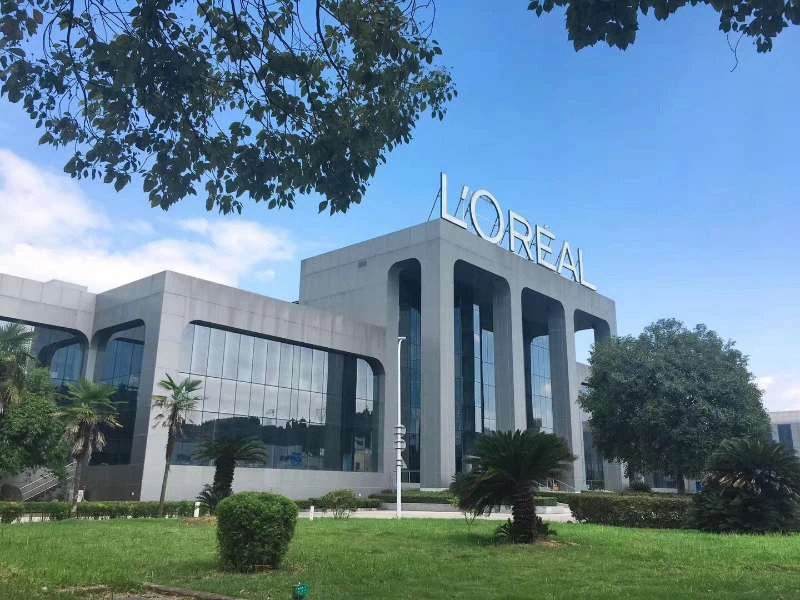
| Photo Credit: brands
| By Lingli Shu





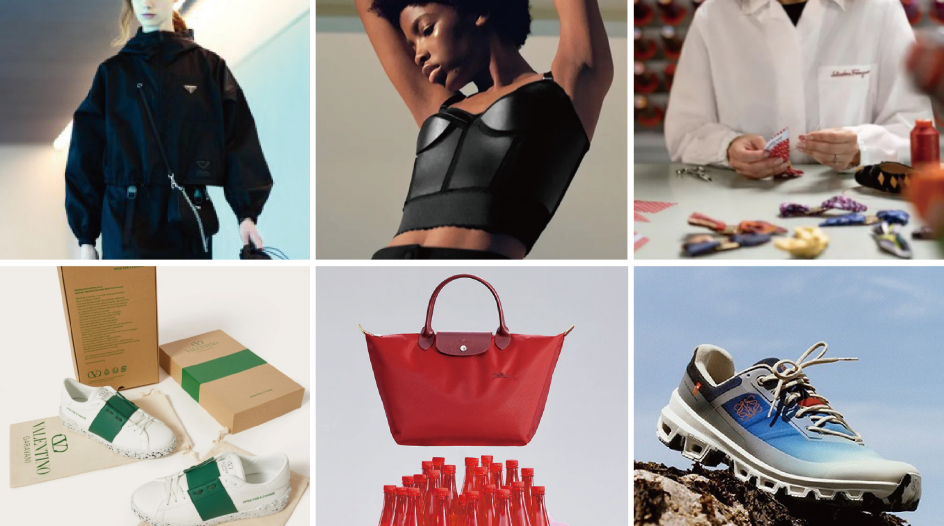





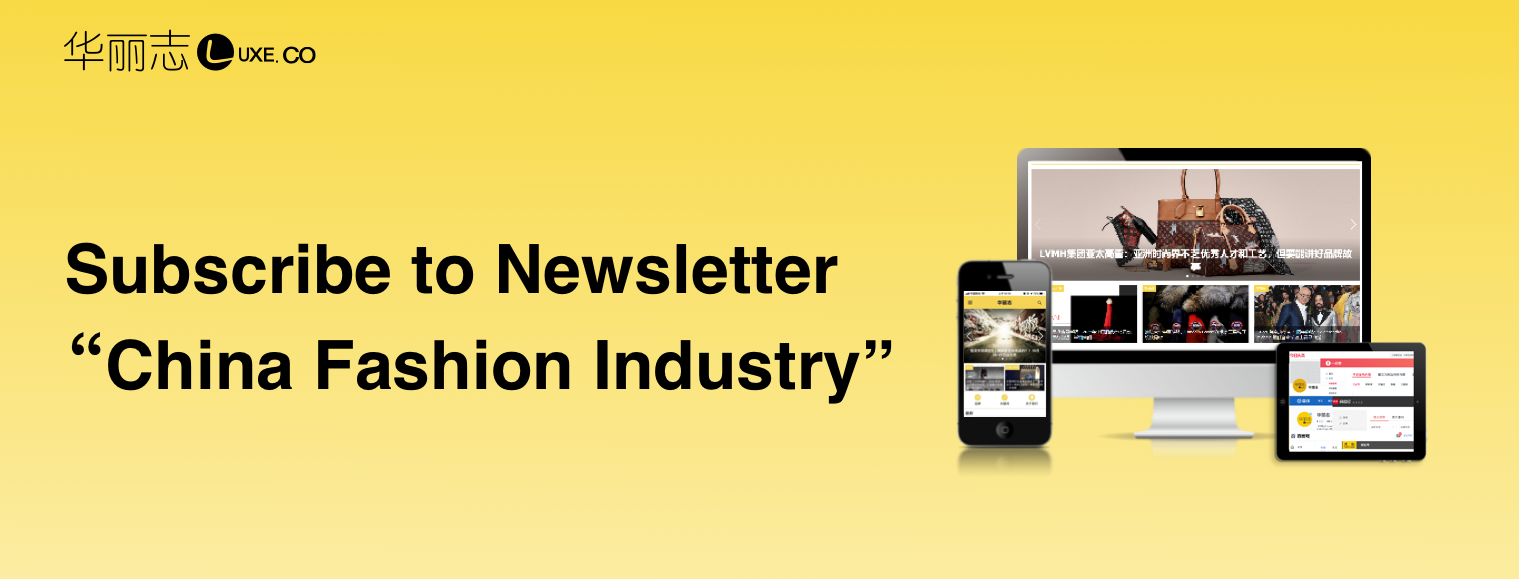
Comments